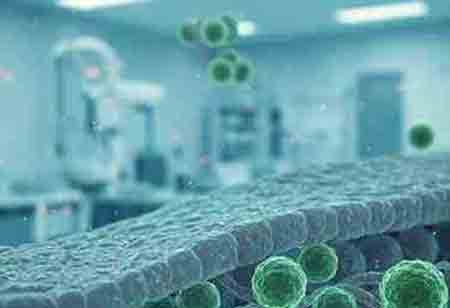Alternative and Complementary Therapies for Fertility Enhancement
By combining conventional medical treatments with appropriate ACTs, individuals seeking to enhance their fertility may improve their chances of conception and achieve their dream of parenthood.

By
Medical Care Review | Thursday, December 19, 2024
Stay on top of your health and well-being with exclusive feature stories on the top medical clinics and treatment centers, expert insights and the latest news delivered straight to your inbox. Subscribe today.
By combining conventional medical treatments with appropriate ACTs, individuals seeking to enhance their fertility may improve their chances of conception and achieve their dream of parenthood.
FREMONT, CA: Alternative and complementary therapies (ACTs) have become increasingly popular among individuals seeking to improve fertility outcomes. These approaches aim to address the underlying causes of infertility, often emphasizing holistic methods that integrate physical, emotional, and mental well-being. While ACTs can serve as a valuable complement to conventional medical treatments, consulting a qualified healthcare professional is crucial before initiating any new therapy.
Popular ACTs for Fertility Enhancement
Acupuncture, herbal medicine, yoga and meditation, dietary changes, physical activity, and counseling are some of the most popular alternative complementary treatments (ACTs) for fertility enhancement.
Acupuncture involves the insertion of thin needles at specific points on the body to stimulate energy flow. This practice has been used for centuries to address various health conditions, including infertility. Research suggests that acupuncture may regulate menstrual cycles, enhance ovulation, and improve blood flow to reproductive organs.
Herbal medicine, which uses plant-based remedies, also supports fertility. Notable herbs such as Dong Quai may help regulate menstrual cycles and hormone levels, Vitex agnus-castus (chaste berry) can improve hormone balance and alleviate premenstrual syndrome (PMS), and red clover may enhance blood circulation to reproductive organs. However, it is essential to consult a qualified herbalist to ensure these remedies' safe and effective use, as some may interact with medications or have side effects.
Yoga and meditation, as mind-body practices, help reduce stress, enhance sleep quality, and promote overall well-being. Regular yoga can strengthen pelvic floor muscles, improve circulation, and reduce anxiety, all of which positively influence fertility. Meditation aids in calming the mind and lowering stress hormones that may negatively impact reproductive health.
Dietary changes are also crucial for optimizing fertility. A balanced diet rich in fruits, vegetables, whole grains, and lean proteins is recommended. Specific fertility-boosting foods include antioxidant-rich options such as berries and dark leafy greens, healthy fats like avocados and olive oil, and fatty fish. Limiting processed foods, sugary drinks, and caffeine can support reproductive health.
Regular physical activity is vital in maintaining a healthy weight, regulating hormones, and boosting overall well-being. Aiming for at least 30 minutes of moderate-intensity exercise most days of the week can positively impact fertility.
Emotional well-being is equally important, and counseling or joining support groups can provide essential emotional support and coping strategies for those facing infertility.
Before beginning any ACT, consulting with a healthcare professional is critical, as some therapies may have risks or interact with medications. ACTs should complement conventional treatments and should not be considered a guaranteed cure for infertility. An individualized approach is key, as the effectiveness of ACTs can vary from person to person. Combining conventional treatments with appropriate ACTs may enhance the chances of conception and support individuals in achieving their fertility goals.
More in News







